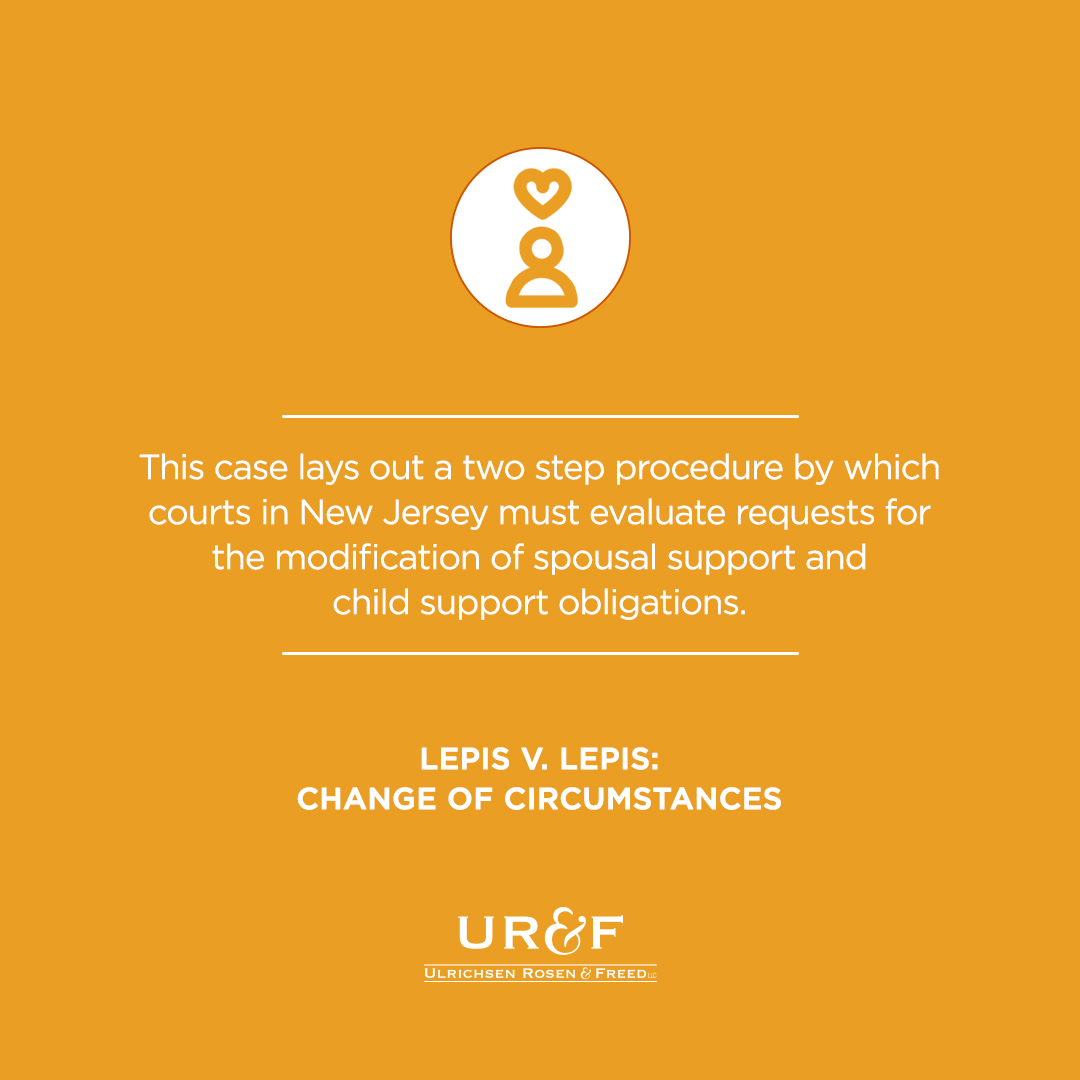Lepis v. Lepis: Change of Circumstances
Lepis v. Lepis, 83 N.J. 139 (1980), may be the most widely cited case in New Jersey family law.
This case lays out a two step procedure by which courts in New Jersey must evaluate requests for the modification of spousal support and child support obligations.
The Lepis Court explains that alimony and child support orders define only the parties’ “present obligations,” which are “always subject to review and modification on a showing of ‘changed circumstances.’” Id. at 146. The Court then observed that disagreements often arise of what type of circumstances are sufficient to justify the modification of a support obligation. The Court then listed multiple examples of these circumstances, such as: (1) an increase in the cost of living; (2) increase or decrease in the supporting spouse’s income; (3) illness, disability or infirmity arising after the original judgment; (4) the dependent spouse’s loss of a house or apartment; (5) the dependent spouse’s cohabitation with another; (6) subsequent employment by the dependent spouse; and (7) changes in federal tax law. These examples were juxtaposed to the fact that “courts consistently rejected requests for modification based on circumstances where are only temporary or which are expected but have not yet occurred.” Id. at 151. The Court pointed out, however, that the changed circumstances, “are not limited in scope to events that were unforeseeable at the time of divorce.” Id. at 152.
Having set out the type of circumstance that could justify modification of support, the Lepis Court then set forth procedural guidelines for trial courts to address modification applications. First, the party seeking modification has the burden of making a prima facie showing of changed circumstances that would warrant the modification. Id. at 157. This includes a full disclosure of that party’s current financial status. Ibid. Only after the party requesting modification has satisfied that burden, the other party then would have an obligation to also provide updated financial information. Id. at 157-58.
Second, the trial court must determine how much to modify (either increase or decrease) the support obligation. Ibid. With respect to child support, the court will re-run the Child Support Guidelines based on the updated financial information. If the party’s net income exceeds the threshold set forth in the guidelines, the court may need to hold a hearing to determine the child’s budget and needs to determine the appropriate support obligation.
A court may also need to hold a hearing before modifying support, if there are any material facts in dispute between the parties. Id. at 159.
After Lepis, these procedural guidelines were codified in New Jersey Court Rule 5:5-4.
If you have questions about establishing child support, modifying child support or any other family law related issue, please contact our firm. Ulrichsen Rosen & Freed LLC is focused exclusively on the practice of family law and serves clients throughout New Jersey including clients residing in Mercer County, Somerset County, Hunterdon County, Burlington County and Middlesex County.


